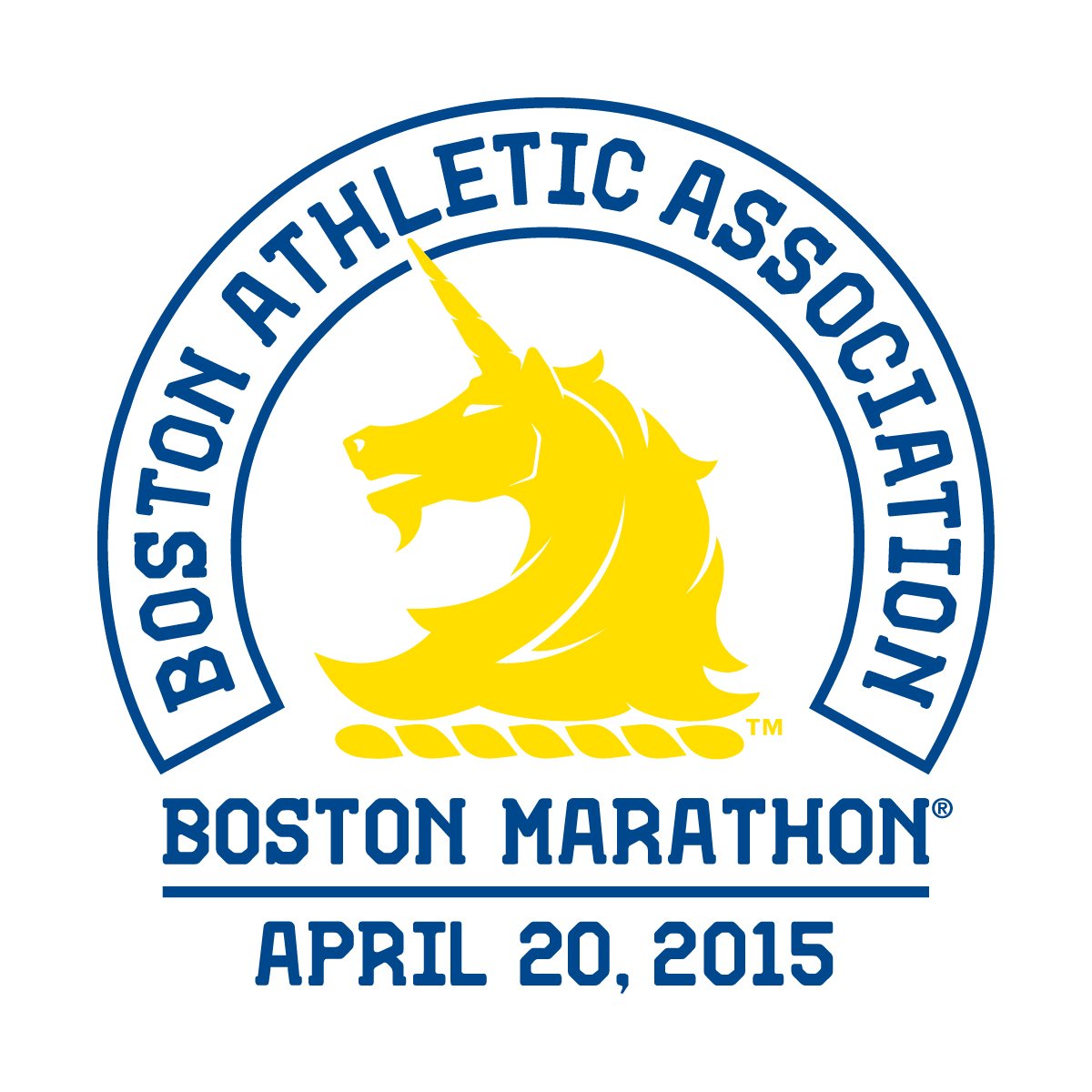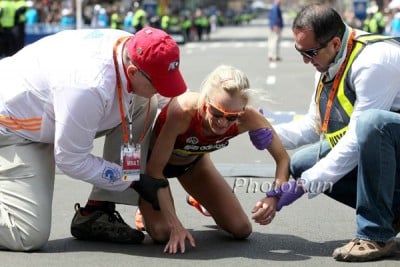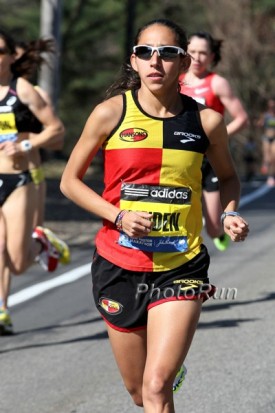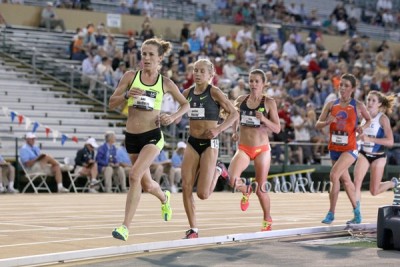2016 Olympic Trials 2015 Boston Marathon American Women’s Preview: Can Flanagan, Linden or Cragg End the American Drought?
By LetsRun.com
April 16, 2015
After appetizers last weekend in cities such as Paris, Rotterdam, Vienna and Milan, it’s time for the main course of the spring marathon season. Next week begins in Hopkinton with the 119th running of the Boston Marathon and finishes at Buckingham Palace with the 35th Virgin Money London Marathon. Both races should be fantastic.
Earlier, we previewed the international women’s field. (We previously looked at the international men and American men). Today, we’ll look at the American women’s elite field, which consists of Olympians Shalane Flanagan, Desiree Linden and Amy (Hastings) Cragg as well as 2:28 performer Adriana Nelson. In terms of storylines, there are two big ones. First, this race will serve as a de facto Olympic Trials preview as Flanagan, Linden and Hastings are the U.S.’s top three female marathoners right now. Second: can one of them follow in Meb’s footsteps and become the first American woman to win Boston since 1985? The main details for Boston are listed below, followed by a comprehensive breakdown of the American women’s field.
What: 119th Boston Marathon
When: Monday, April 20, 2015. Elite women start at 9:32 a.m. ET; elite men start at 10:00 a.m. ET.
Where: Hopkinton to Boston, Massachusetts
How to watch: Live on Universal Sports Network or UniversalSports.com starting at 8:30 a.m ET. Those who don’t subscribe to Universal Sports can also watch live online at watchlive.baa.org. In Boston, WBZ4 will provide local coverage. Universal Sports will also have an hour-long preview show on Sunday at 4 p.m. ET.
Prize money (amount is the same for men’s and women’s races)
1st: $150,000 6th: $12,000 11th: $2,600
2nd: $75,000 7th: $9,000 12th: $2,100
3rd: $40,000 8th: $7,400 13th: $1,800
4th: $25,000 9th: $5,700 14th: $1,700
5th: $15,000 10th: $4,200 15th: $1,500
Abbott World Marathon Majors
Boston is one of six Abbott World Marathon Majors events (Tokyo, Boston, London, Berlin, Chicago, New York). AWMM changed its scoring system earlier this year (previously, champions were crowned over a two-year cycle; now the cycle is one year plus one race). Currently we are in AWMM Series IX, with the standings as follows after one race (Tokyo):
1. Birhane Dibaba, 25 points
2. Helah Kiprop, 16 points
3. Tiki Gelana, 9 points
4. Selly Chepyego, 4 points
5. Flomena Daniel, 1 point
At the end of the series (which concludes at the 2016 Tokyo Marathon), the athlete with the most points wins the $500,000 grand prize. Scoring is 25 points for a win, 16 for 2nd, 9 for 3rd, 4 for 4th and 1 for 5th.
U.S. women’s elite field
| Name | PB | Nation | Comment |
| Shalane Flanagan | 2:21:14 (Berlin, 2014) | USA | PR’d twice in ’14, including 2:22:02 for 7th in Boston |
| Desiree Davila Linden | 2:22:38 (Boston, 2011) | USA | ’11 runner-up was 10th last year, then 5th in NYC |
| Amy (Hastings) Cragg | 2:27:03 (Chicago, 2014) | USA | Tied PR with 4th-place finish in Chicago last fall |
| Adriana Nelson | 2:28:52 (London, 2008) | USA | 15th last year |
Can an American Woman Win Boston?
The Boston organizers did a good job this year as they managed to secure the top three U.S. female marathoners: Flanagan, Linden and Cragg. Flanagan and Linden are locks for the 2016 Olympic team assuming they make it to the Trials healthy and finish the race. Cragg, who was fourth at the 2012 Trials in Houston, has the inside track on the third spot to Rio after tying her PR with a 2:27:03, fourth-place showing in Chicago last fall.
But whereas the priority at the Trials is to finish top three, the emphasis in Boston is on finishing as high as possible. And for Flanagan (who was 4th in 2013 and ran the fastest time ever by an American in Boston — 2:22:02 — last year) and Linden (runner-up in 2011), that means setting their sights on the victory. It has been 30 years since Lisa Rainsberger won Boston and since that race, the U.S. hasn’t had another winner, though Linden came agonizingly close four years ago, losing out to Caroline Kilel by just two seconds.
The drought remains, and if it doesn’t end this year, it may endure for some time. Consider that the U.S.’s top female marathoners will all be running the Olympic Trials next year, which take place on February 13 in Los Angeles. With Boston scheduled for April 18, it’s unlikely that any of them tries to run another marathon just nine weeks later. So that means the next realistic shot for an American woman to win Boston will be in 2017, at which point Flanagan will be 35, Linden will be 33 and the other woman who has been competitive in majors — Kara Goucher — will be 38. Marathoners can be competitive into their 30s, but it becomes more difficult to win majors.
Look at the best American marathoner of the past 20 years, Deena Kastor. Most observers would agree that Kastor has done a better job dealing with growing old than almost anyone, as she set a masters world record of 69:37 in the half marathon last year at age 41. Kastor won London in 2006 at age 33 but since then, she hasn’t run faster than 2:27:54. That’s a fine time, but it’s rarely fast enough to win a major these days.
The good news is that the Americans’ chances in Boston are brighter than they’ve been for some time. Below, four reasons this could be the year the drought ends.
1) The international field is relatively small. There are 10 international women in the Boston elite field. There were 17 last year, and there are 20 in London this year (plus four Brits). Simple math tells us that it is easier to beat 10 people than 17 or 20. Additionally, a small elite field means that, if Flanagan or Linden run their best, only one or two of the top women have to be slightly off in order for an American to win.
2) The top three Americans are all in the field. As we explained above, Flanagan, Linden and Cragg are the U.S.’s top three marathoners right now (Kara Goucher hasn’t run a good marathon in two years and Cragg’s PR is almost two minutesbetter than Annie Bersagel‘s). Of the three, only Flanagan and Linden have a realistic shot at the victory as Cragg’s PR ranks 12th overall and she doesn’t have the history of success in majors of Flanagan or Linden.
3) No Rita Jeptoo. Jeptoo, who won Boston in 2006, 2013 and 2014, was unbeatable in the marathon over the past two years and now we know why: she failed an out-of-competition drug test prior to last year’s Chicago Marathon and was subsequently banned from the sport for two years. Take her out of the field and suddenly it’s a lot easier to win the race.
4) Shalane Flanagan is coming off a career year. Flanagan lowered her PR twice in 2014, from 2:25:38 to 2:22:02 in Boston and then from 2:22:02 to 2:21:14 in Berlin, making her the second-fastest American woman of all time. Linden ran well in her last marathon too (2:28:11 for 5th in New York), but Flanagan is the U.S.’s best marathoner since Kastor. She has a higher ceiling than Linden and after two PRs in 2014, she also has a better chance to reach that ceiling than the consistent Linden, who is not as aggressive as Flanagan.
The odds are still stacked against the Americans. Flanagan ran the fastest time ever by an American at Boston last year and that was only good for seventh place; three of the women who beat her will be back in 2015. Four women in the Boston field have faster PRs than her (eight women, including Flanagan, have faster PRs than Linden). A great race from Flanagan beats a good race from most of the women in the field, but even if she runs 2:22 again, she’ll need the top two returners from last year, sub-2:20 women Buzunesh Deba and Mare Dibaba, to slip up. There’s a better chance that an American woman wins on Monday than an American man, but the likelihood is still pretty low definitely under 20%.
Shalane Flanagan — 33 years old, 2:21:14 pb (2014 Berlin), 68:31 half
Last two marathons: 3rd, 2014 Berlin (2:21:14); 7th, 2014 Boston (2:22:02)
Tuneup race: 31:09.02 for 2nd at Stanford Invitational 10,000 on April 3
Whatever happens on Monday, don’t expect Flanagan to push the pace from the gun as she did last year. In 2014, the Massachusetts native entered with the aim of running a fast time and breaking the field. She accomplished the former (registering a PR of over three and a half minutes) but in the end it was Flanagan who broke, running 2:22:02 for seventh place. In that race, Flanagan went through the half in a blazing 69:20 and led for the first 20 miles before she was dropped.
“I had never run a marathon that way before,” Flanagan told Toni Reavis recently. “All of my previous four marathons had been very tactical. But last year I had the objective to see how fast I could run, because I knew that I’d have a number of very tactical races just ahead with the Olympic Trials and the Olympic Games. Now I’m hoping to blend tactics and aggression, knowing I am a legitimate 2:21 marathoner and top 10 in the world, which gives me confidence. But I think I need to learn how to close and finish races better, and we are working on that.”
Flanagan hinted at her race plan for Monday — a blend of “tactics and aggression.” But what exactly does that mean? We bet almost every marathoner’s plan involves some combination of those two things. We’ll try to get a better answer out of Flanagan on Friday at the pro press conference (though she obviously may want to keep some components of her race plan a secret).
If Flanagan doesn’t plan on using her strategy from Boston and Berlin (when she led for the first 30k in pursuit of Kastor’s American record) last year, what strategy will she employ? Ironically, her best result in a major was the result of the exact opposite strategy she used in Boston last year. In her debut marathon in New York in 2010, the first 21 miles were covered at just 2:30:30 marathon pace, but Flanagan upped the pace significantly over the final five miles, running them in 26:51 (2:20:47 pace). That accomplishment was even more impressive when you factor in that the final five miles in New York traverse Central Park’s hills. LetsRun.com stat guru John Kellogg calculated that Flanagan’s final five miles in that race were worth 26:26 on a flat course — 2:18:37 pace for the full marathon.
Of course, Flanagan didn’t win that race either (she lost to Edna Kiplagat by 20 seconds) but she did finish second and was able to outlast Mary Keitany, who at that time had run the second-fastest half marathon in history (66:36) and would win London in 2:19:19 five months later. Almost five years later, Flanagan doesn’t possess the same kind of speed she had in 2010 (she ran 14:49 on the track four months before New York), but waiting until the final five miles to make her move could be a smart approach for the only woman in the field with an Olympic medal. Just look at her PRs at 5,000 and 10,000 compared to the other top women in the field.
Shalane Flanagan 14:44/30:22
Mare Dibaba 15:42/32:05 (road)
Buzunesh Deba 15:52/32:20 (road)
Aberu Kebede 16:18/30:48
Sharon Cherop 15:40/32:03
Caroline Kilel 15:25 (road)/31:36 (road)
Desiree Linden 15:08/31:37
Amy Hastings 15:14/31:10
Joyce Chepkirui 15:58/30:37 (road)
The data may be a bit skewed considering Flanagan spent more time on the track than most of these other women, but there’s no doubting that she was world-class when she was on the oval, finishing in the top eight at Worlds three times and earning a bronze medal at the 2008 Olympics in the 10,000. Flanagan remains a capable runner at shorter distances, taking second at the Beach to Beacon 10K and running an American record of 47:00 for 15K last year. If, as she mentioned to Reavis, she needs to “learn how to close and finish races better,” wouldn’t turning a marathon into a long tempo followed by a five-to-ten-mile race make it easier to run strong at the end rather than pushing the envelope for 26.2 miles?
Undoubtedly, this is something Flanagan will have discussed with coach Jerry Schumacher over the past few months. Just how Flanagan strikes that balance between “tactics and aggression” could determine whether she is battling for the win over the final few miles or falling off the pace.
As far as Flanagan’s current fitness is concerned, she appears to be in good shape. Flanagan ran 31:09.02 for 10,000 two weeks ago at Stanford, leading almost all of it before she was outkicked by Gelete Burka on the final lap. She ran the same race two years ago, producing a similar result (31:04 for 1st) and wound up fourth in Boston that year. And she’s entering Boston fresh off two straight marathons PRs, the first of which made her the fastest American ever at Boston. She has the ability and experience to win Boston on the right day; will things break in her favor on Monday?
Desiree Linden — 31 years old, 2:22:38 pb (2011 Boston), 70:34 half
Last two marathons: 5th, 2014 New York (2:28:11); 10th, 2014 Boston (2:23:54)
Tuneup race: 72:36 for 12th at NYC Half on March 15
Linden has not lost to an American other than Flanagan in the marathon (against whom she is 0-3 in the marathon and 0-11 overall dating back to the 2001 NCAA XC Championships) since 2009. During that time, she’s finished 3rd in Chicago (2010), 2nd in Boston (2011), 2nd at the Olympic Trials (2012), 5th in Berlin (2013), 10th in Boston (2014) and 5th in New York (2014). Her only bad race: a DNF at the 2012 Olympics, when she made it less than three miles due to a hip injury.
In her two marathons last year, Linden utilized the same strategy: get to around 20 miles feeling good before picking it up and really racing people over the final 10k. It didn’t get her the place she wanted in Boston last year (she was 10th) because Flanagan set such an aggressive pace up front, but Linden still ran 2:23:54, her fastest marathon by over two minutes (excluding her wind-aided 2011 Boston time). Linden had to be tough in New York last fall, battling back after being dropped by the leaders during mile 10 and mile 17 (she finally fell off during mile 19) and she was rewarded with a fifth-place finish — her fifth in a major marathon — passing three women in the final miles and holding off Morocco’s Rkia El Moukim by just two seconds. If Linden takes the same approach in Boston, she should be contention when the racing really starts, assuming someone doesn’t push it from the gun as Flanagan did last year.
Her prep race didn’t go quite as well this year as last year (she was 12th at the NYC Half in 72:36; last year she finished 7th in 71:37), but Linden has proved that if she makes it to the start line of a marathon healthy, she’s going to run a smart, patient race and usually finish as the top American or close to it. Making it past Flanagan would be a big accomplishment. If both she and Flanagan can finish in the top five, it would mark the first time that’s happened in Boston — or any major marathon — since 2011.
Amy (Hastings) Cragg — 31 years old, 2:27:03 pb (2011 Los Angeles/2014 Chicago), 71:19 half
Last two marathons: 4th, 2014 Chicago (2:27:03); 20th, 2013 New York (2:42:50)
Tuneup race: 50:18 for 1st at U.S. 15K Champs on March 14
Cragg and Linden used to do long runs together as teammates at Arizona State. They’ll both participate in a long run of a different kind on Monday as they face each other in the marathon for the second time (Linden beat Cragg, 2:25:55 to 2:27:17, at the 2012 Olympic Trials).
It’s a race Cragg is more prepared for than ever before. The purpose of last year’s marathon in Chicago was to prove to Hastings she could still handle the marathon after a DNF in Yokohama in 2012, a 20th-place finish (2:42:50) in New York in 2013 and a withdrawal from Boston in 2014.
“Honestly, it was a huge relief,” Cragg explained to Runner’s World. “The whole point of Chicago was to get myself back on track with the marathon. I was just trying to get to the point where I knew I could improve.”
Chicago was a good race for Cragg (formerly Hastings; she married Irish Olympian/former Arkansas stud Alistair Cragg in November) as she wound up fourth in 2:27:03, tying her PR. She’s put in more miles in a longer buildup for Boston, and told Runner’s World she thinks that will pay dividends on race day:
“Three months out from Chicago I wasn’t anywhere close to 20-plus mile long runs, but three months out from Boston I was already going 20-plus, and doing longer tempos. I’m just a little bit ahead. But because I’ve had this nice slow, steady build up I feel ready. Tired, but not overdone.”
Her race results also suggest that she’s ready to run well in Boston. She ran a controlled 72:04 to win the Rock ‘n’ Roll Arizona Half Marathon in January (she was trying to hit marathon pace according to Runner’s World) and then won the U.S. 15K Champs in Jacksonville by a commanding 32 seconds on March 14. With Flanagan and Linden in the field, Boston represents a good opportunity for Cragg to see where she ranks in the U.S. marathon hierarchy right now. And in a more tactical race, Cragg could be a threat to finish in the top three thanks to her track speed (15:14/31:10; scroll up to the Flanagan section to see how that compares to the rest of the field).
Adriana Nelson — 35 years old, 2:28:52 pb (2008 London), 71:09 half
Last two marathons: 9th, 2014 Frankfurt (2:33:54); 15th, 2014 Boston (2:31:15)
Tuneup race: 73:15 for 15th at NYC Half on March 15
Nelson ran 2:31:15 last year to finish as the third American in Boston (15th overall). If she repeats that feat this year, it will mean that she’s either run a great race or one of the women in front of her — Flanagan, Linden and Cragg — had an off day.
| [gravityform action=”polls” id=”132″ mode=”poll” cookie=”1 month” show_results_link=”false” display_results=”true” percentages=”true” counts=”false” ajax=”true”] |
| [gravityform action=”polls” id=”133″ mode=”poll” cookie=”1 month” show_results_link=”false” display_results=”true” percentages=”true” counts=”false” ajax=”true”] |






